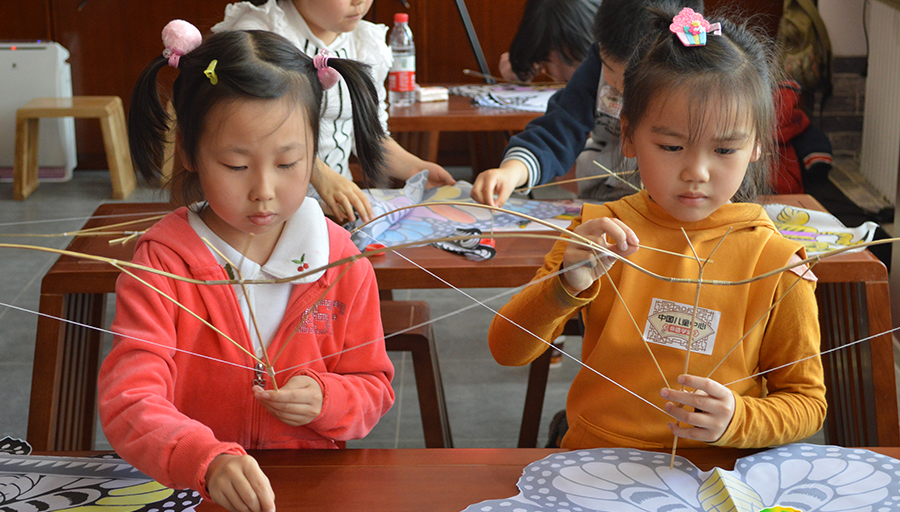Inheritance of intangible cultural legacies on campus

Elementary students in Beijing make kites. Many schools focus on cultivating students’ ability to understand traditional cultures and protect cultural legacies.
Traditional culture should first be inherited and then it can be well developed. Through various campus activities that awaken people’s national cultural memories, young people can become interested in intangible culture. These efforts should be supported.
Beijing: children with art
Recently, an annual educational activity was held by the Beijing Chuiyangliu school district in Panjiayuan, Beijing’s vast antique market. The activity lasted for one week, and approximately 200 children participated in it.
Among these children with big curious eyes and a strong desire for knowledge, a shadow puppeteer with generations of cultural knowledge explained the knowledge and details behind each action while performing a small shadow figure by hand for the children. This inheritor of traditional knowledge said that the inheritance of intangible cultural legacy requires children to understand what the intangible culture is and become interested in it. “Only then can we make more young people understand the cultural legacy in our country, including shadow puppetry, and through this we can finally make various artistic forms pass down in an endless succession,” he said.
Wugang: folk art on campus
Sixian Opera, a traditional folk art in Wugang, Hunan Province, was listed on the third batch of the national intangible cultural heritage. Many high school students in Wugang can sing some melodies of Sixian Opera. How can these students sing such a traditional opera? It’s because Deng Xing’ai, a provincial inheritor of Sixian Opera and a folk art master, often visits the Wugang No. 2 High School to play a stringed instrument and sing Sixian Opera on campus. His beautiful singing has gradually attracted many students’ attention and some of them are apprentices to Master Deng.
Master Deng always thinks about how to carry forward this traditional opera, and his strategy of “starting with children” has taken effect. He said that the first time he went to school to play and sing Sixian Opera, students, who used to listen to popular music instinctively rejected his “unfashionable” traditional melodies. But as time passed, students have realized the narrative characteristic of Sixian Opera and discovered its beauty and significance in traditional folk art.
